1 - 20 of 72 Results
Pagination
Date:
Heading into 2025, we are about to commemorate the thirtieth anniversary of the Beijing Declaration and Platform for Action (Beijing+30). Adopted by 189 countries at the Fourth World Conference on Women in 1995, it is one of the most comprehensive blueprints for gender equality and women’s empowerment ever created.
Date:
It presents findings from a legislative review, stakeholder mapping, and capacity assessment to inform the development of GRP policies and programs. Despite growing efforts to support Women-Owned Businesses (WOBs) and Gender-Responsive Enterprises (GREs).
Date:
Tailored to the Vietnamese business landscape, this handbook serves as both a practical guide and a source of inspiration, empowering women-led small and medium enterprises (SMEs) to confidently expand their businesses and access domestic and international markets.
Date:
This report assesses the capacity and needs of stakeholders in advancing Supplier Diversity and Gender-Responsive Procurement (SD-GRP) in Viet Nam. It provides key recommendations to enhance market access for Women-Owned Businesses (WOBs) and Gender-Responsive Enterprises (GREs).
Date:
This handbook is a practical guide for women-owned SMEs in Viet Nam to navigate and benefit from state support policies. It provides detailed information on available assistance, eligibility criteria, and application processes.
Date:
The WE RISE Together project (March 2022 - February 2025) aims to create equal market opportunities for women by advancing supplier diversity through gender-responsive procurement (SD-GRP) in Thailand and Viet Nam.
Date:
The materials align with the Women’s Empowerment Principles (WEPs). Launched in 2010 by UN Women and UN Global Compact, the seven principles within WEPs enable companies of all sizes and sectors to become more gender-responsive throughout their value chain.
Date:
Care for children, the elderly, people with disabilities, and vulnerable populations is a right and a shared responsibility. It is essential for families, societies, and economies to function and thrive.
Date:
Women own one third of the world’s businesses, but women-owned businesses win less than one per cent of the procurement spend of both large corporate buyers and governments. Meanwhile, the private sector spends trillions of dollars on goods and services, with 58 per cent of capital flows spent on supplier payments in private organizations with revenues exceeding US $1 billion. This highlights a massive gender gap and market failure.
Date:
UN Women is closely examining the opportunities and challenges for lesbian, gay, bisexual, transgender, gender diverse, intersex, and queer (LGBTIQ+) persons’ full equality and inclusion in electoral processes in 2024 and beyond.
Date:
This submission on electoral participation and sexual orientation and gender identity closely examines the opportunities and challenges for lesbian, gay, bisexual, transgender, gender diverse, intersex, and queer (LGBTIQ+) persons’ full equality and inclusion in electoral processes.
Date:
This outcome report contains an overview of the Forum and a summary of key insights, reflections, and recommendations for prioritized action to accelerate implementation of the WEPs and progress for gender equality in the Asia-Pacific.
Date:
There are many barriers and challenges to the economic empowerment of women in distress, i.e., residents of shelters and prisons, while there are also success stories of their successful reintegration into society. This baseline study aims to understand the programs, policies, and practices for economic empowerment of women residing in shelters and prisons. Its geographical scope covers the cities of Islamabad, Karachi, Sukkur, Lahore, Multan, Peshawar, and Quetta.
Date:
Co-designed by UN Women and Dharma Life, the ‘Dharma Life Community Learning Centre' aims to increase women’s economic participation while providing their children with a space to learn, thrive and grow
Date:
UN Women Afghanistan commissioned this graphic novel, co-produced by Afghan women, to bring to life Afghan women’s powerful advocacy and incredible resilience in the most oppressive circumstances. Stories of loss reverberate throughout Afghanistan. But there is also hope even in the face of such loss. Afghan women don’t accept the restrictions imposed on their rights. Afghan women will not give up. They are unstoppable.
Date:
This is the third edition of UN Women Centre of Excellence for Gender Equality in the Republic of Korea's quarterly newsletter. This issue highlights the Centre's accomplishments from September to November.
Date:
This policy brief builds upon the valuable lessons learned from the implementation of the ACRF and provides comprehensive recommendations and pathways to integrate a gender-mainstreamed approach in ASEAN’s initiatives across various dimensions including health, human security, economic integration, digitalization, and sustainability. In the realm of economic integration, it recommends linking the recovery of various service sectors, including micro, small, and medium enterprises (MSMEs), with existing frameworks that promote decent work for all, thereby benefiting women workers.
Date:
The Strategic Note (SN) articulates the multi-year strategy, rationale, envisioned results, targets, and resource requirements for UN Women Viet Nam. In essence, the SN provides a roadmap for improving the lives of women and girls in the context where UN Women operates.
Date:
This report examines emerging good practices of enterprise models in the digitally enabled care economy in Southeast Asia and identifies pathways towards decent work for the predominantly female workforce.
Date:
With its step-by-step guidance, checklist, and various tools, the toolkit becomes a self-learning tool for business leaders, confederations of enterprises or associations of businesses, so that they can better promote gender equality in the workplace and build their own gender-responsive business mechanism.

![[cover]](/sites/default/files/styles/search_image_140px/public/2025-03/cn-c1515-en_unwomenchina-newsletter2024-960px.jpg?itok=5te-4pFb)
![[cover]](/sites/default/files/styles/search_image_140px/public/2025-02/vn-c1464-report_grp-vietnam-960px.jpg?itok=VthSpE6w)
![[cover]](/sites/default/files/styles/search_image_140px/public/2025-02/vn-e-commerce-handbook-eng_960px.jpg?itok=WBiRyuxg)
![[cover]](/sites/default/files/styles/search_image_140px/public/2025-02/vn-c1462-grp-assessment-of-capacity-cover-960px.jpg?itok=Bkt5oC35)
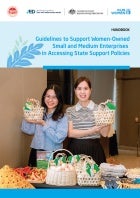
![[cover]](/sites/default/files/styles/search_image_140px/public/2025-01/vn-c1416-wrt_photobook_eng-960px.jpg?itok=KOSbU96A)
![[cover]](/sites/default/files/styles/search_image_140px/public/2024-11/ap-cx-intro-brief_gender-responsive-decent-care-work-toolkit-960px.jpg?itok=TdG47tJ7)
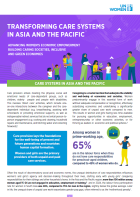
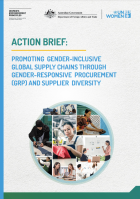

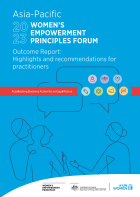
![[cover]](/sites/default/files/styles/search_image_140px/public/2024-05/pk-cx-more-than-recreation-apr2024-960pxpx.jpg?itok=SpSBhLFk)
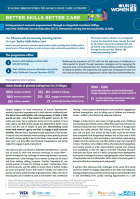
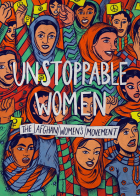
![[cover]](/sites/default/files/styles/search_image_140px/public/2024-02/coe-c650-newsletter-v3-eng-960px.jpg?itok=V4fRkrfj)

![[cover]](/sites/default/files/styles/search_image_140px/public/2023-10/vn-sn_brochure_vietnam-960px.jpg?itok=GuQg_lgK)
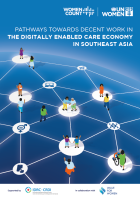
![[cover]](/sites/default/files/styles/search_image_140px/public/2023-08/cn-training-manual-creating-a-diverse-zh-960px.jpg?itok=QMEwibhP)